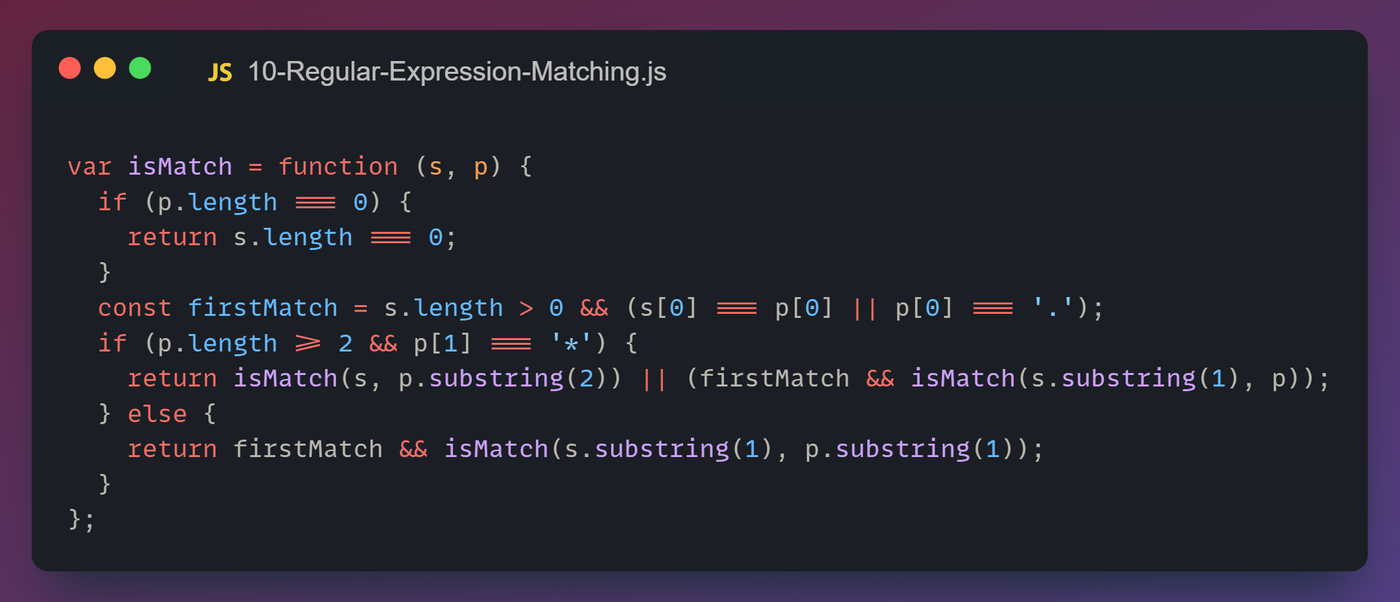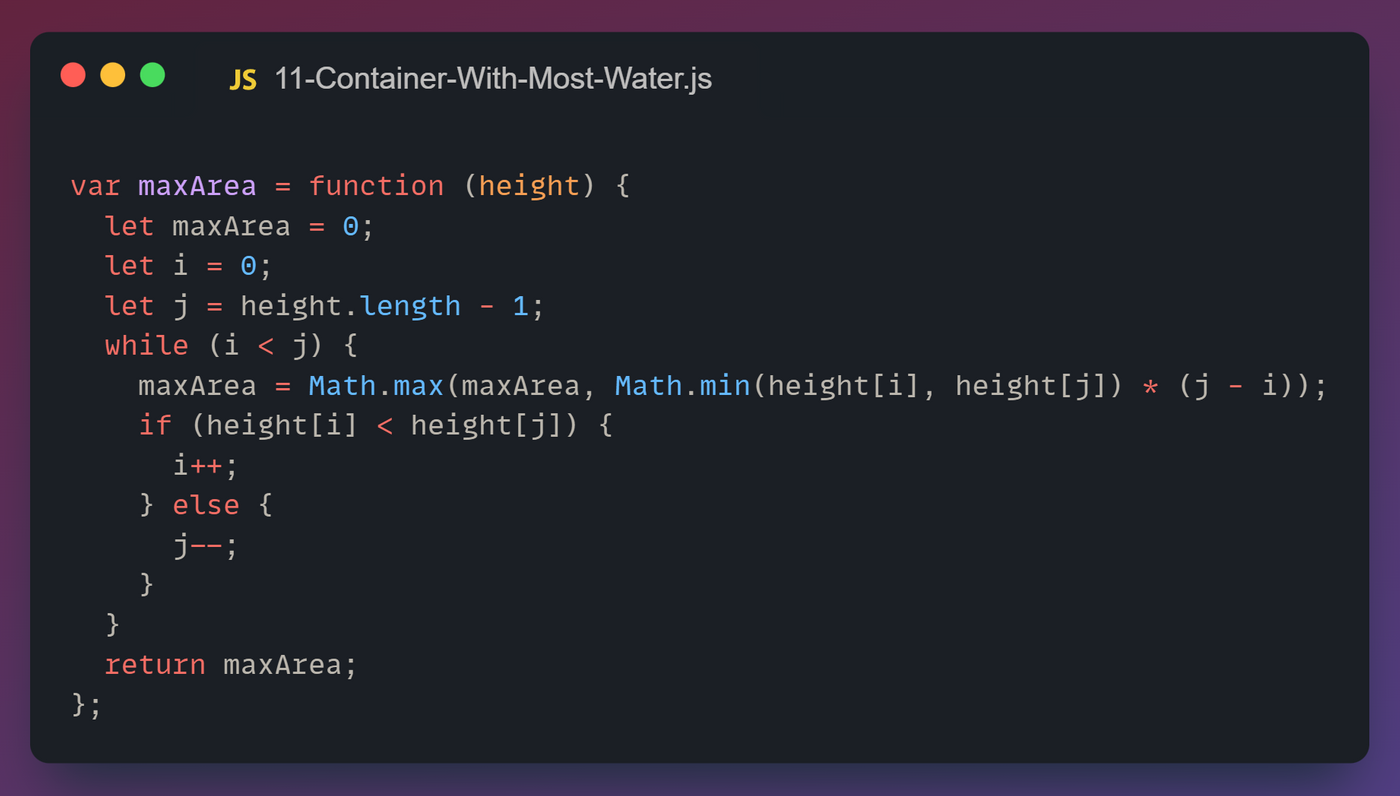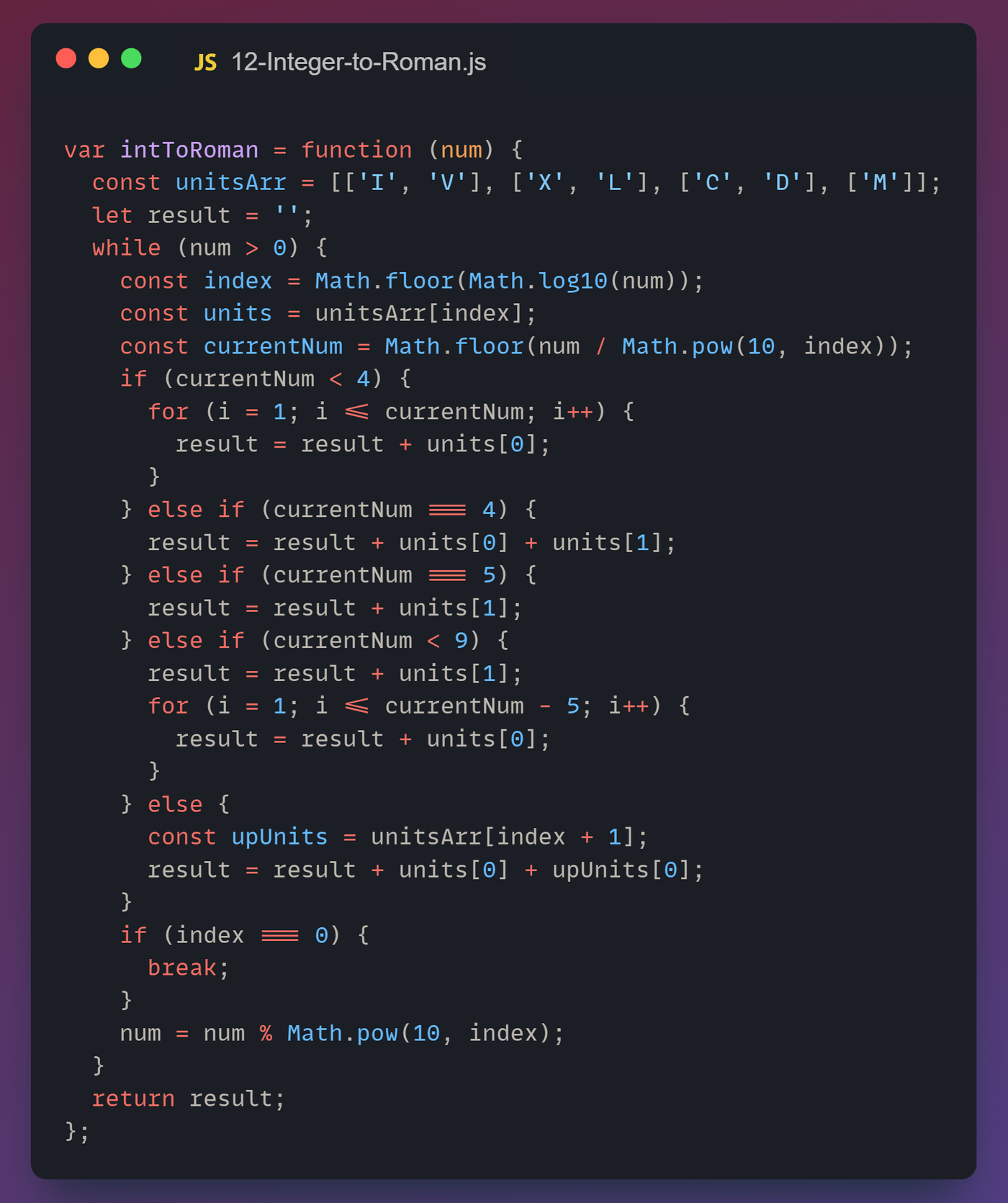Javascript in Leecode 10–12 | 面試問題

source code在此 | Github
10. Regular Expression Matching
Given an input string s and a pattern p, implement regular expression matching with support for '.' and '*' where:
'.'Matches any single character.'*'Matches zero or more of the preceding element.
The matching should cover the entire input string (not partial).
Example 1:
Input: s = "aa", p = "a" Output: false Explanation: "a" does not match the entire string "aa".
Example 2:
Input: s = "aa", p = "a*" Output: true Explanation: '*' means zero or more of the preceding element, 'a'. Therefore, by repeating 'a' once, it becomes "aa".
Example 3:
Input: s = "ab", p = ".*" Output: true Explanation: ".*" means "zero or more (*) of any character (.)".
Constraints:
1 <= s.length <= 201 <= p.length <= 30scontains only lowercase English letters.pcontains only lowercase English letters,'.', and'*'.- It is guaranteed for each appearance of the character
'*', there will be a previous valid character to match.

11. Container With Most Water
You are given an integer array height of length n. There are n vertical lines drawn such that the two endpoints of the ith line are (i, 0) and (i, height[i]).
Find two lines that together with the x-axis form a container, such that the container contains the most water.
Return the maximum amount of water a container can store.
Notice that you may not slant the container.
Example 1:
Input: height = [1,8,6,2,5,4,8,3,7] Output: 49 Explanation: The above vertical lines are represented by array [1,8,6,2,5,4,8,3,7]. In this case, the max area of water (blue section) the container can contain is 49.
Example 2:
Input: height = [1,1] Output: 1
Constraints:
n == height.length2 <= n <= 1050 <= height[i] <= 104

12. Integer to Roman
Roman numerals are represented by seven different symbols: I, V, X, L, C, D and M.
Symbol Value I 1 V 5 X 10 L 50 C 100 D 500 M 1000
For example, 2 is written as II in Roman numeral, just two one's added together. 12 is written as XII, which is simply X + II. The number 27 is written as XXVII, which is XX + V + II.
Roman numerals are usually written largest to smallest from left to right. However, the numeral for four is not IIII. Instead, the number four is written as IV. Because the one is before the five we subtract it making four. The same principle applies to the number nine, which is written as IX. There are six instances where subtraction is used:
Ican be placed beforeV(5) andX(10) to make 4 and 9.Xcan be placed beforeL(50) andC(100) to make 40 and 90.Ccan be placed beforeD(500) andM(1000) to make 400 and 900.
Given an integer, convert it to a roman numeral.
Example 1:
Input: num = 3 Output: "III" Explanation: 3 is represented as 3 ones.
Example 2:
Input: num = 58 Output: "LVIII" Explanation: L = 50, V = 5, III = 3.
Example 3:
Input: num = 1994 Output: "MCMXCIV" Explanation: M = 1000, CM = 900, XC = 90 and IV = 4.
Constraints:
1 <= num <= 3999

Like my work? Don't forget to support and clap, let me know that you are with me on the road of creation. Keep this enthusiasm together!